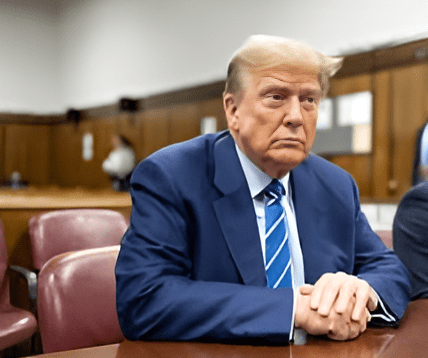President-elect Donald Trump faces sentencing in New York after the state’s highest court refused to delay proceedings. The decision comes after Trump was found guilty on 34 felony counts of falsifying business record in connection with a hush money payment to adult film star Stormy Daniels during his 2016 campaign.
Supreme Court Rejects Intervention
Citing presidential immunity and the potential impact on his upcoming inauguration, Trump’s lawyers asked the U.S. Supreme Court to intervene and delay the sentencing process. The Supreme Court refused to halt the sentencing by a vote of 5-4. Chief Justice John Roberts and Justice Amy Coney Barrett joined the three liberal justices in rejecting the request.
Sentencing Details and Expected Outcome
Judge Juan M. Merchan has scheduled the sentencing for January 10, 2025, ten days before Trump’s inauguration. The judge indicated that he does not plan to impose jail time, fines, or probation, suggesting an “unconditional discharge.” Trump will have a felony conviction on his record but will not face additional penalties.
Legal Arguments and Presidential Immunity
Trump’s lawyers argued that, as president-elect, he should have immunity from criminal proceedings and that the sentencing could jeopardize the presidential transition. However, the New York Court of Appeals and the U.S. Supreme Court deemed those arguments insufficient to warrant a delay.
Implications for Trump’s Presidency
As a consequence of and even despite the felony conviction, Trump is set to assume the presidency on January 20, 2025. He will be the first sitting U.S. president with a felony record. Legal experts say that while a presidential pardon could cover federal crimes, it does not apply to state offenses. Thus, only the New York governor can forgive Trump for this conviction.
Future Legal Proceedings
Trump’s attorneys have vowed to appeal the verdict after sentencing. That appeal process will start in the New York State Supreme Court, Appellate Division, and could eventually go to the New York Court of Appeals. If they do not prevail at the state level, Trump’s attorneys could seek U.S. Supreme Court review.
Public and Political Reactions
The decision to proceed with sentencing has drawn mixed responses. Supporters say it affirms the principle that nobody is above the law. Critics say it could compromise the integrity of the presidential office. The watch for the sentencing date continues as the nation waits to see the consequences of Trump’s presidency and the political landscape in general.

